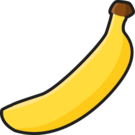Pinyin final: "e3"
The Pinyin final "e3" is used in the second half of Pinyin syllables. In MandarinBanana's mnemonic system, the second half of a Pinyin syllable is always represented by a location. You can visit the Pinyin index to see all Pinyin syllables from this mnemonic group, or to see all Pinyin syllables "e3" can appear in.
Mnemonics for e3
Characters with e3
also / too / (in Classical Chinese) final particle implying affirmation
也
=
㇆
+
丨
+
乚
:
Mnemonic symbol: the excavator (as in a person with this job), because a plow and a shovel are both tools for moving earth, and a dinosaur bone is what excavators are digging for.
Maud Younger (y) is helping an excavator (也) in the elevator (e3). Together they are excavating a dinosaur bone (丨): Maud turns the earth with a plow (㇆), while the excavator moves the earth with a shovel (乚).
Maud Younger (y) is helping an excavator (也) in the elevator (e3). Together they are excavating a dinosaur bone (丨): Maud turns the earth with a plow (㇆), while the excavator moves the earth with a shovel (乚).
(adverb) also; both ... and ... (before predicates only) / (literary) particle having functions similar to 啊[a5]
(after a verb or adjective) one who (is) ... / (after a noun) person involved in ... / -er / -ist / (used after a number or 後|后[hou4] or 前[qian2] to refer to sth mentioned previously) / (used after a term, to mark a pause before defining the term) / (old) (used at the end of a command) / (old) this
者
=
⺹
+
日
:
Mnemonic symbol: the sun (日) is wearing a crown (⺹). This reminds me of Louis XIV, le Roi Soleil, the Sun King, which will thus be the mnemonic symbol for 者. The crown (⺹) wearing sun (日), the Sun King (者) and James II of England (zh) are taking part in a writing contest in the elevator's living room (e3) to see who of them is the best author (作者).
can / may / able to / to approve / to permit / to suit / (particle used for emphasis) certainly / very
可
=
丁
+
口
:
Alternative mnemonic symbol: kebab, from the pronunciation "ke". Karl Marx (k) is preparing a kebab (mnemonic symbol for 可) in the elevator's living room (e3). He also skewers mandarins (口) on the long steel nails (丁) and will only allow (可) his guests to eat the rest of the kebab if they eat their mandarins first.
100 ml / one-tenth of a peck / measure for dry grain equal to one-tenth of sheng 升 or liter, or one-hundredth dou 斗
and / moreover / yet / for the time being / to be about to / both (... and...)
older sister
姐
=
且
+
女
:
Bessie Coleman (女) and Joan of Arc (ji) have been searching through an ancestry archive for days and days. Inside of the elevator (e3) they stand in front of a shelf (且) which contains thousands of ancestry records, and after they worked very hard, they found out that through some complicated lineage they are older sisters (姐) to each other.
snow / CL:場|场[chang2] / (literary) to wipe away (a humiliation etc)
surname Xue
to give up / to abandon / to give alms
舍
=
人
+
舌
:
Mnemonic symbol: a pawn who is abandoned to save the king.
Neanderthal Man (人) is so hungry that he opens his mouth, sticks out his tongue (舌) and is about to devour Sherlock Holmes (sh) in the elevator (e3), but Sherlock Holmes acts quickly enough to throw a pawn (舍) onto Neanderthal Man's tongue so that he munches the pawn instead.
Neanderthal Man (人) is so hungry that he opens his mouth, sticks out his tongue (舌) and is about to devour Sherlock Holmes (sh) in the elevator (e3), but Sherlock Holmes acts quickly enough to throw a pawn (舍) onto Neanderthal Man's tongue so that he munches the pawn instead.
iron (metal) / arms / weapons / hard / strong / violent / unshakeable / determined / close / tight (slang)
to divide / to break up / to split / to separate / to dissolve / to solve / to melt / to remove / to untie / to loosen / to open / to emancipate / to explain / to understand / to know / a solution / a dissection
解
=
刀
+
牛
+
角
:
Mnemonic symbol: acetone, in which anything can be dissolved.
Inside of the elevator (e3) Joan of Arc (ji) is dissolving a horn (角). A moment ago she cut the horn from the bull's (牛) head using a cleaver (刀). The bull is still shocked as he sees Joan of Arc dissolve (解) his horn in acetone (解).
Inside of the elevator (e3) Joan of Arc (ji) is dissolving a horn (角). A moment ago she cut the horn from the bull's (牛) head using a cleaver (刀). The bull is still shocked as he sees Joan of Arc dissolve (解) his horn in acetone (解).



